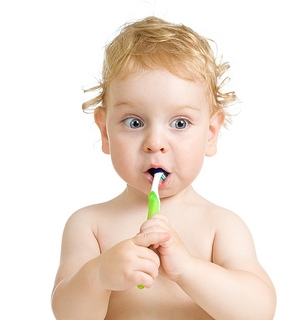
When it comes to gum disease and your child, it’s a good news/bad news situation. The very good news is that children rarely suffer from advanced gum disease, or periodontitis. The not-so-good news? Early gum disease, called gingivitis, is unfortunately an all-too-common childhood problem.
- What does gingivitis look like in children?
Childhood gingivitis has the same causes and symptoms as the adult version. Healthy gums are firm and pink. When bacteria and plaque accumulate on the teeth, your child’s gums become irritated and inflamed. Call our Acworth office right away if you notice any of these symptoms of gingivitis: bleeding gums, puffiness, redness, gum tissue receding from the teeth, or bad breath even after brushing.
- How to Prevent Gingivitis
The most common cause of gingivitis is poor dental care. Creating a regular dental routine is the best way to prevent gingivitis from ever developing! Brushing and flossing with your child for two minutes twice a day from the very beginning helps make healthy cleaning a lifelong habit. Care should be taken to gently brush teeth at the gum line to make sure plaque doesn’t get a chance to build up there and cause gum irritation. And when your child comes in for regular cleanings, Drs. Turner & Beck can be sure that any plaque that might remain on the teeth is removed.
Two additional notes: as your child approaches adolescence, hormone fluctuations can make gums more sensitive and easily irritated. This is a time to really emphasize careful and gentle brushing and flossing. Also, some medical conditions may make children more pre-disposed to gum problems, so be sure to make us aware of your child’s medical history.
While gingivitis is very preventable with proper dental hygiene, there are some rare gum conditions that can occur around the time of puberty that are quite different from gingivitis. Aggressive Periodontitis can cause severe bone loss around the first molars and incisors, even without any kind of plaque build-up, and Generalized Aggressive Periodontitis leads to inflammation of the gums, heavy plaque, and, eventually, loose teeth. Again, these conditions are rare, but if you have a family history of these diseases, let us know. Checkups and cleanings are a great way to catch any potential gum problems, so be sure to bring your child in for regular visits.
Almost all childhood gingivitis is preventable. With careful brushing and flossing at home, and visiting us regularly for checkups and cleanings, your child can enjoy healthy gums and teeth now and learn habits that will keep those gums and teeth healthy for a lifetime. And that is a good news/great news situation!






